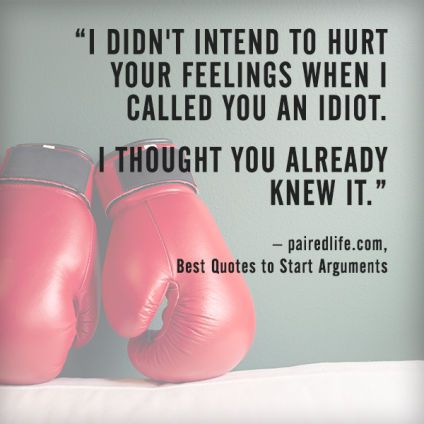16 Quotes – How to Handle Disagreements and Differences of Opinion for Business Leaders
How business leaders handle disagreements and differences of opinion when it comes to controversial topics can leave them with a win – or an uphill battle.
Why Business Leaders Have to Handle Disagreements and Differences of Opinion the Right Way
Today’s business leaders should expect to have to take on controversial topics, weigh in and take a stand. And in a day and age when CEOs are being recorded on smartphones during private employee meetings, or when one Tweet or a Facebook post made in haste or the heat of the moment can release a torrent of bad publicity on and even kill a business, knowing how to handle disagreements and differences of opinion in the workplace is an absolute must. Before you let employees duke it out in the name of free speech, set some ground rules that will help lead to a positive outcome.
16 Quotes for Business Leaders Who Handle Disagreements and Differences of Opinion in the Workplace

1. “Do you yearn to defend your own beliefs or do you yearn to see the world as clearly as you possibly can?” – Julia Galef, in Why you think you’re right – even if you’re wrong on Ted.com.
When you handle disagreements and differences of opinion at work, remember that productive outcomes can occur, but not when any of the parties involved resort to personal attacks. This leads to a fallacy called ad hominem, or argument ad hominem. What people who deploy this tactic don’t understand is that they might derail any constructive outcome and – in the end – their personal attack is a sign that they don’t have research and logic to support their position.

2. “When you have no basis for an argument, abuse the plaintiff.” – Marcus Tullius Cicero

3. “Argumentum ad hominem (argument directed at the person).This is the error of attacking the character or motives of a person who has stated an idea, rather than the idea itself.” www.csun.edu in Logical Fallacies and the Art of Debate

4. “Ridicule is the first and last argument of a fool.” – Charles Simmons
One technique in debate is to seek to understand the other party’s position/s so well that you could argue for them.

5 and 6. “Argument: A discussion that occurs in which I’m right, but he/she/they haven’t realized it yet.” via UrbanDictionary.com which also helpfully provided this gem: “The process by which two people repeat the same two conflicting opinions whilst elevating vocal amplitude to falsely assume either of the opinions is correct.”

If you research how to win any argument you can also find a handful of articles with one-liners suitable for instantly “winning” any argument by putting the other guy into an indefensible position. Such as asking the question, “Hey, when did you stop beating your wife?”
7 and 8. Conversely – and maybe even more helpful for those who are looking for a fight, is the article we found titled Best Quotes to Start Arguments – the Fine Art of Insulting People, Fighting and Inciting Battles with sweethearts like:

- “I would agree with you, but then both of us would be wrong.” and
- “I didn’t intend to hurt your feelings when I called you an idiot. I thought you already knew it.”

Successful leaders themselves don’t always agree on how to handle disagreements and differences of opinion:

9. “Great leaders are almost always great simplifiers, who can cut through argument, debate and doubt, to offer a solution everybody can understand.” – Colin Powell

10. “The aim of argument, or of discussion, should not be victory, but progress.” – Joseph Joubert

11. “For good ideas and true innovation, you need human interaction, conflict, argument, debate.” – Margaret Heffernan
12. “Discussion is an exchange of knowledge; an argument is an exchange of ignorance.” – Robert Quillen

13. “The only way to get the best of an argument is to avoid it.” – Dale Carnegie

14. “Men are apt to mistake the strength of their feeling for the strength of their argument. The heated mind resents the chill touch and relentless scrutiny of logic.” – William E. Gladstone

At the end of the day, when you have to handle disagreements and differences of opinion in the workplace, people usually need to be able to walk away, go home, get up the next day and work together. All parties involved in a debate need to commit to assumptions and agree to rules of engagement that don’t undermine the overall corporate culture, morale, environment, and which don’t end up in damaged relationships.

15. “There are two types of people: those who try to win and those who try to win arguments. They are never the same (people).” – Nassim Nicholas Taleb

16. “Keep cool; anger is not an argument.” – Daniel Webster
You might also like: Speaking of Obstructionists – 5 Types of Employees Holding Your Business Back






Leave a Reply
Want to join the discussion?Feel free to contribute!